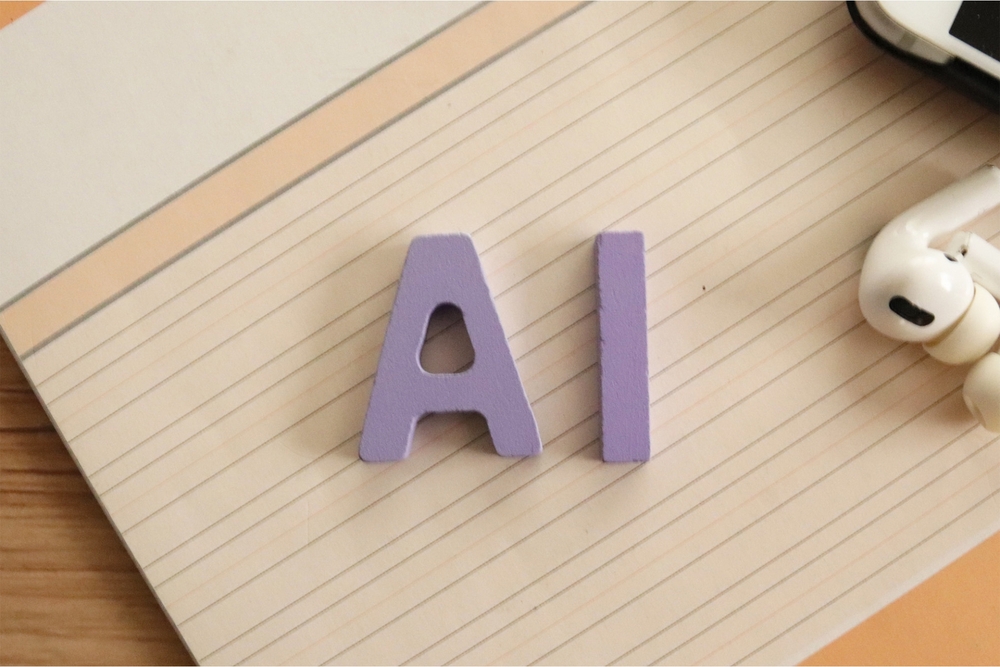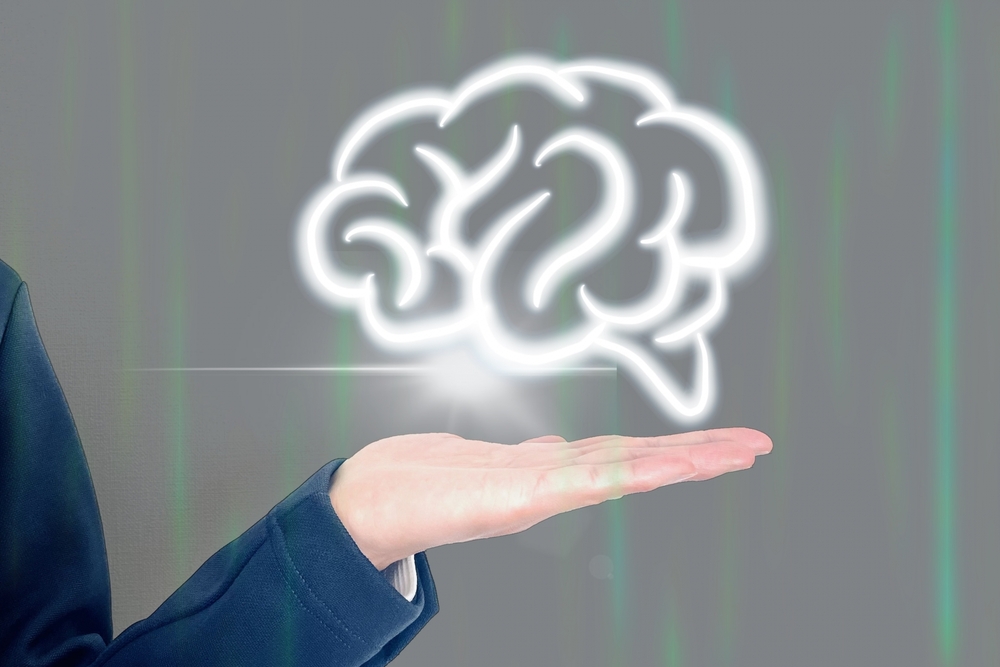機械学習(AI)エンジニアは、AI開発に携わるエンジニアの中でも機械学習をメインに実装・開発に携わる職種です。データ分析やDXの需要が拡大している中で、とくに注目されている職種ではあるものの、今転職して本当に将来性があるのか不安に感じる方もいるでしょう。
そこで今回は、機械学習(AI)エンジニアの将来性について解説します。また、今後需要が高まることが予想される産業や必要なスキル、向いている人の特徴なども解説していくので、気になる方はぜひ参考にしてみてください。

機械学習(AI)エンジニアは、AI開発に携わるエンジニアの中でも機械学習をメインに実装・開発に携わる職種です。データ分析やDXの需要が拡大している中で、とくに注目されている職種ではあるものの、今転職して本当に将来性があるのか不安に感じる方もいるでしょう。
そこで今回は、機械学習(AI)エンジニアの将来性について解説します。また、今後需要が高まることが予想される産業や必要なスキル、向いている人の特徴なども解説していくので、気になる方はぜひ参考にしてみてください。
Machine learning (AI) engineers are among the engineers involved in AI development, and are mainly involved in the implementation and development of machine learning. Although it is a position that is attracting a lot of attention as the demand for data analysis and DX expands, some may wonder if there is really a future for them if they change their jobs now.
In this article, we will discuss the future of machine learning (AI) engineers. We will also explain the industries where demand is expected to increase in the future, the skills required, and the characteristics of those who are suited for the job.

さまざまな職種がある中で、機械学習(AI)エンジニアは将来性があるといわれています。なぜ機械学習(AI)エンジニアは将来性が期待されているのでしょうか?現状を踏まえながら、その理由を解説します。
AI業界の市場規模は世界的にも拡大傾向にあります。総務省の「令和5年版 情報通信白書」によると、世界のAI市場規模(売上高)は2022年の時点で前年比78.4%増の約18兆7,000億円まで成長すると見込まれており、その後も2030年まで加速度的成長が見られるとしています。
日本でも、国内AIシステムの市場規模は2022年時点で約3,900億円(前年比35.5%増)となっており、2027年には1兆円以上拡大する予測です。市場規模が拡大すれば、自ずと機械学習(AI)エンジニアの需要も高まってくるはずです。
また、2020年以降の新型コロナウイルス感染拡大の影響を受けたものの、2024年現在は多くの企業でDX推進に向けた投資意欲が高まっています。生成AIを活用したサービスも広がっており、機械学習(AI)エンジニアはさまざまな業界で活躍できる存在といえるでしょう。
IT人材の育成・確保に取り組む企業は増えているものの、AI人材に関しては不足しているのが現状です。IT人材はシステムやデータベースの管理、ネットワークセキュリティなどに精通している人材を指します。一方、AI人材は機械学習やディープラーニング、自然言語処理など、AIシステムの設計や開発などに精通している人材です。AI技術に関する専門知識が必要となりますが、人材育成が追いついていないのが現状といえます。
上記でも解説したように、AI市場規模は年々拡大を続けており、各企業もAIに対応したシステムを取り入れるためにAI人材を求めている状況です。需要が高い状況にありながらも、人材の供給が追いつかないため、AI人材は不足しているといえるのです。
幅広い業界でAI人材の需要が高まっている中で、人材不足が問題となっています。この問題を解決しようと、経済産業省を中心にAI人材の育成に力を入れ始めました。
たとえば、AIやデジタルに関する知識を身につけるために学習コンテンツを提供する「マナビDX」は、これまでデジタルスキルを学習する機会がなかった人でも、気軽に学べるポータルサイトです。また、民間の事業者が社会人向けに提供するIT・データ分野を中心とする教育訓練講座においては、第四次産業革命スキル習得口座(リスキル講座)として認定されており、キャリアアップを支援する取り組みも実施されています。
今後は育成だけでなく、AI人材として活躍できる場が広がっていくよう、待遇を整える動きが強まると予想できます。こうした理由から、機械学習(AI)エンジニアの将来性も期待できると考えられるでしょう。
United Worldでは、キャリアアドバイザーが機械学習(AI)エンジニアの転職活動をサポートします。機械学習(AI)エンジニアに関する求人情報も豊富に扱っておりますので、お気軽にご相談ください。

Of the many different types of jobs available, machine learning (AI) engineers are said to have a promising future. Why are machine learning (AI) engineers expected to have a promising future? We will explain the reasons, taking into account the current situation.
The market size of the AI industry is expanding on a global scale. According to the "2023 White Paper on Information and Communications" published by the Ministry of Internal Affairs and Communications, the global AI market (sales) is expected to grow 78.4% year-on-year to approximately 18.7 trillion yen in 2022, with accelerated growth expected until 2030.
In Japan, the domestic market for AI systems was approximately 390 billion yen in 2022 (up 35.5% from the previous year), and is expected to expand by more than 1 trillion yen by 2027. As the market grows, demand for machine learning (AI) engineers will naturally increase.
In addition, although affected by the spread of the new coronavirus infection after 2020, as of 2024, many companies are increasingly willing to invest in DX promotion. Services utilizing generative AI are also expanding, and machine learning (AI) engineers can be found in a variety of industries.
While an increasing number of companies are working to train and secure IT personnel, there is currently a shortage of AI personnel. AI personnel, on the other hand, are experts in designing and developing AI systems such as machine learning, deep learning, and natural language processing, etc. Expertise in AI technology is necessary, but the training of AI personnel has not kept pace with the current situation.
As explained above, the AI market continues to expand year by year, and companies are looking for AI professionals to help them develop AI-enabled systems. Despite the high demand, the supply of AI personnel is not keeping pace with the demand, resulting in a shortage of AI personnel.
While demand for AI personnel is increasing in a wide range of industries, a shortage of human resources is becoming an issue. To solve this problem, the Ministry of Economy, Trade and Industry (METI) and others have begun to focus on AI human resource development.
For example, "Manavi DX," a portal site that provides learning content to acquire knowledge about AI and digital technology, allows people who have never had the opportunity to learn digital skills to do so. In addition, in education and training courses offered by private businesses for working people, mainly in the IT and data fields, it has been recognized as a Fourth Industrial Revolution Skill Acquisition Account (reskill course), and efforts to support career development are also being implemented.
In the future, it can be expected that there will be a stronger movement to not only train AI personnel but also to treat them well so that they will have more opportunities to play an active role as AI personnel. For these reasons, the future of machine learning (AI) engineers is also promising.
At United World, our career advisors are here to support you in your search for a Machine Learning (AI) Engineer job. We have a wide range of job openings for machine learning (AI) engineers, so please feel free to contact us for more information.

機械学習(AI)エンジニアの将来性が期待できる中で、懸念点が一切ないわけではありません。先ほどもご紹介したように、AI人材が不足している問題を解消するために、現在経済産業省を中心に育成に力を入れています。AI技術には専門的な知識を習得する必要があるため、すぐにAI人材が育成できるとは限りませんが、今後機械学習(AI)エンジニアの数が増えていけば、競争が激化する可能性も考えられるでしょう。
また、AIの発展によって機械学習(AI)エンジニアそのものが不要になるのではないかという声もあります。たとえば、現時点ですでにプログラミングが自動化していることから、AIが新たなAIを開発できるようになれば、エンジニアは不要になる可能性もあるでしょう。
しかし、AIによるプログラム開発は完璧ではありません。AIによってプログラミングはできても、最終的には人間の手が必要になってきます。
とくに機械学習(AI)エンジニアは、単にAIを活用してプログラミングを行うのではなく、AIに機械学習アルゴリズムを実装・運用するのが主な役割です。アルゴリズムの開発やデータ収集、機械学習モデルを動作させるために必要な環境構築なども行うことになります。これらの仕事がAIに取って代わられる心配はないといえるでしょう。

While the future potential of machine learning (AI) engineers is promising, it is not entirely free of concerns. As mentioned earlier, the Ministry of Economy, Trade and Industry (METI) is currently focusing on training AI personnel to solve the problem of a shortage of AI personnel, However, as the number of machine learning (AI) engineers increases in the future, competition may intensify.
There are also those who say that the development of AI may render machine learning (AI) engineers themselves unnecessary. For example, if AI can develop new AI, engineers may become unnecessary, since programming is already automated at this point.
However, program development by AI is not perfect; even though AI can do the programming, human hands will ultimately be needed.
In particular, machine learning (AI) engineers are primarily responsible for implementing and operating machine learning algorithms on AI, rather than simply programming with AI. They will also be responsible for developing algorithms, collecting data, and building the environment necessary to run the machine learning models. There is no concern that these jobs will be replaced by AI.

あらゆる業界において機械学習(AI)エンジニアの需要は高まっていますが、今後より需要が高まっていくと予想されているのは、以下の産業です。
医療や介護業界では、すでにAI技術の活用が進められています。たとえば、軽度認知障害を持つ患者が、その後アルツハイマー病に進行するのかを予測するAIが開発されました。脳の画像解析を行うことで進行を予測し、その精度は88%にも上ります。
また、施設内の見守りをAIが行うサービスも開発されています。このサービスは、緊急時の検知パターンをデータとして蓄積・分析し、異常を発見したらセンサーを発動させる仕組みです。個人情報保護の観点からカメラの使用が難しい施設内において、複数のセンサーを活用するこのサービスならプライバシーを守りつつ異常を感知できます。
直接診断を下したり、治療や介護を行ったりするのは人間になりますが、診断や治療のサポートとしてAI活用が期待されています。とくに高齢化が進んでいる日本では、医療・介護従事者の負担を軽減するために、AI技術はさらに普及していくでしょう。
農業・漁業は現在人手不足の問題を抱えています。その影響もあり、作業の負担を軽減し、効率化を図るためにAI技術が導入され始めているのです。
たとえば、農業であれば収穫時期をAIによって予測する技術や、自動で収穫する機器の開発などが進んでいます。AIによって技術が見える化されれば、技術承継もしやすくなるでしょう。
漁業だと、養殖産業で自動的に餌やりを行うスマート給餌機の開発や水揚げデータの予測、漁業領域の絞り込みなどにもAI技術が活用されています。人手不足の問題を解消するために、さまざまなAI機器・システムが開発されているため、機械学習(AI)エンジニアも活躍できると考えられます。
製造業でも人手不足の問題や従業員の高齢化が進んでいるため、AI技術が導入されています。AI技術の導入によって作業の効率化はもちろん、安全性の向上や品質の均一化なども期待できるでしょう。
たとえば、産業用ロボットにAIを導入することによって“ロボットティーチング”の自動化が可能です。ロボットティーチングとは、ロボットに作業を教え込むプロセスで、従来は人間が手動で行っていたものです。
AIによる自己学習機能で製品パターンなどを自動で学習でき、高精度でハンドリングや検品などを行えます。また、AIがロボットの異常を自動検出する仕組みを活用すれば、事前にロボットが故障することも予測できるため、適切なタイミングでメンテナンスを実施することも可能です。
物流業界が抱えるさまざまな課題を解決するために、AIを活用した物流システムが導入されてきています。物流システムにAI技術を取り入れることで、倉庫管理業務のコストを削減できたり、配送ルートの最適化を行ったりすることが可能です。
すでに大手企業では倉庫内にて商品を運んでくれる自動走行ロボットを導入するケースや、最適な集配の順序を予測してドライバーの業務効率化を図るシステムを導入するケースも見られます。物流・インフラ業界では今後もAI技術の需要は高まると予測できるため、機械学習(AI)エンジニアの需要も高いといえるでしょう。
幅広い業界でAI技術が取り入れられている中で、金融業界においてもAI導入が求められるようになりました。金融業界の場合、単に業務効率化やコスト削減のためだけでなく、顧客ニーズの変化や正確なデータを保有・更新するためにAIが必要だとされています。
たとえば、AIが収集した膨大なデータや分析結果をもとに、市場予測やポートフォリオの提案を行う「ロボアドバイザー」という投資サービスがあります。また、AIを活用した不正取引の防止システムを導入し、不正出金・不正口座を検知するなど犯罪を防止する動きも強まっているのです。

While demand for machine learning (AI) engineers is growing in all industries, the following industries are expected to be in greater demand in the future
The medical and long-term care industries are already making use of AI technology. For example, AI has been developed to predict whether a patient with mild cognitive impairment will subsequently progress to Alzheimer's disease. It predicts the progression of the disease by analyzing brain images, and its accuracy is as high as 88%.
Another service has also been developed in which an AI watches over people in a facility. This service accumulates and analyzes data on emergency detection patterns and activates sensors when an abnormality is detected. This service, which utilizes multiple sensors, can detect abnormalities while protecting privacy in facilities where the use of cameras is difficult from the standpoint of protecting personal information.
Although it is humans who directly diagnose, treat, and care for patients, there are high expectations for the use of AI to support diagnosis and treatment. Especially in Japan, where the population is aging, AI technology is expected to become more widespread in order to reduce the burden on medical and nursing care workers.
The agriculture and fishery industries are currently facing a labor shortage. AI technology is beginning to be introduced to reduce the workload and improve efficiency.
For example, in agriculture, AI technology is being used to predict the timing of harvests and to develop automatic harvesting equipment, etc. If technology can be visualized through AI, it will be easier to pass on skills.
In the fishery industry, AI technology is being used to develop smart feeders that automatically feed fish in the aquaculture industry, to predict landings data, and to narrow down fishing areas. Machine learning (AI) engineers will also be able to play an active role as various AI devices and systems are being developed to solve the problem of labor shortages.
AI technology is also being used in the manufacturing industry to address labor shortage issues and an aging workforce.
For example, AI can be used to automate "robot teaching" by introducing AI to industrial robots. Robot teaching is the process of teaching a robot to perform a task, which was previously performed manually by humans.
The self-learning function of AI can automatically learn product patterns and other information, enabling highly accurate handling and inspection of products. In addition, by utilizing a system in which AI automatically detects robot abnormalities, it is possible to predict robot failures in advance, enabling maintenance to be performed at the appropriate time.
AI-based logistics systems are being introduced to solve various problems faced by the logistics industry. By incorporating AI technology into logistics systems, it is possible to reduce warehouse management costs and optimize delivery routes.
Some major companies have already introduced automated robots that carry goods in warehouses, or systems that predict the optimal pickup and delivery sequence to improve driver work efficiency. Demand for AI technology in the logistics and infrastructure industries is expected to continue to grow, and machine learning (AI) engineers will also be in high demand.
As AI technology is being adopted in a wide range of industries, the financial industry is also expected to adopt AI. In the case of the financial industry, AI is needed not simply to improve operational efficiency and reduce costs, but also to hold and update accurate data on changing customer needs.
For example, there is an investment service called "robo-advisor," which provides market forecasts and portfolio recommendations based on the vast amount of data and analysis collected by AI. There is also a growing trend to prevent crime by introducing AI-based fraud prevention systems to detect unauthorized withdrawals and unauthorized accounts.

機械学習(AI)エンジニアとして活躍するためには、身につけておきたい知識があります。具体的にどのような知識を習得しておくべきかを解説していきます。
機械学習ライブラリは、機械学習モデルを構築するためにプログラムをまとめたものを指します。機械学習を構築する上で何度も作成するのは手間がかかってしまいますが、ライブラリがあることでプログラムを使い回すことができ、効率的に開発が行えるようになるため、機械学習ライブラリに関する知識は身につけておきたいところです。
機械学習ライブラリにはさまざまな種類があり、それぞれ特徴が異なります。
データベースは、収集したデータを管理プログラムによって整理し、必要に応じていつでも取り出せるような状態にしたものです。AIが学習・分析を行うためにはデータが必要となります。しかも、精度を求めるには膨大な量のデータを取り扱う必要があります。そのため、データベースに関する知識も習得しておくとよいでしょう。
データベースの管理プログラムは「DBMS」と呼ばれ、扱うためにはデータベース言語が必要です。現在とくに活用されているデータベース言語はSQLになります。なかでもMySQLはOSに関係なく利用でき、拡張性が高いことや検索がスピーディーに行えることから、機械学習にもよく用いられている言語です。
機械学習(AI)エンジニアは、大量のデータを取り扱うことになりますが、このデータを効率よく分析するために、クラウドシステムを利用する場合も少なくありません。手元のコンピュータの容量だけでは取り扱えるデータ量に限界があるためです。膨大なデータを取り扱うにはクラウドシステムの活用は欠かせないものといえます。
クラウドエンジニアほど専門的な知識は不要ではあるものの、余裕がある場合はAWSやGoogle Cloudなど、クラウドサービスに関する知識も身につけておきましょう。
データモデルとは、現実世界に存在するデータをデータベースへ格納する際に作成する設計図のようなものです。形式や構造をどのようにするか定義づけたものをデータモデルと呼びます。
機械学習(AI)エンジニアは大量のデータを取り扱うため、データの形式や構造、データ間における関連性を明確にすることも重要です。データの解析に合わせてデータベースを設計したり、データ構造を考えたりするのも、機械学習(AI)エンジニアの仕事になります。
機械学習のアルゴリズムを開発する際には、統計分析の知識も必要です。とくに、統計学やデータ評価手法に関する知識を持っておくと、専門用語なども理解しやすくなります。
ただし、統計分析に関する知識を持っていなかったとしても、開発自体は可能です。それでも中央値や標準偏差など、統計学と共通する用語も多く出るため、統計分析で学習した内容が機械学習に活かせる場面もあります。

In order to be a successful machine learning (AI) engineer, there is certain knowledge that you should acquire. This section explains what specific knowledge you should acquire.
A machine learning library is a collection of programs for building machine learning models. While it is time-consuming to create a machine learning program many times in order to build a machine learning model, having a library makes it possible to use the program and develop it efficiently, so it is important to acquire knowledge about machine learning libraries.
There are various types of machine learning libraries, each with different characteristics.
Databases are data that are collected, organized by management programs, and made available for retrieval whenever needed. Moreover, to achieve the desired accuracy, a huge amount of data must be handled. Therefore, it is a good idea to acquire knowledge about databases.
Database management programs are called "DBMS" and require a database language to handle them. Currently, SQL is the most widely used database language. MySQL is one of the most commonly used database languages for machine learning because it can be used regardless of the operating system, is highly scalable, and allows for speedy searches.
Machine learning (AI) engineers deal with large amounts of data, and often use cloud systems to analyze this data efficiently. This is because the amount of data that can be handled is limited only by the capacity of the computer at hand. The use of cloud systems is indispensable for handling huge amounts of data.
Although cloud engineers do not need as much specialized knowledge as cloud engineers, if you can afford it, you should also acquire knowledge of cloud services such as AWS and Google Cloud.
A data model is like a blueprint for storing real-world data in a database. The data model defines the format and structure of the data.
Because machine learning (AI) engineers deal with large amounts of data, it is also important to define the format and structure of the data, as well as the relationships among the data. Designing databases and data structures for data analysis is also the job of machine learning (AI) engineers.
Knowledge of statistical analysis is also necessary when developing machine learning algorithms. In particular, knowledge of statistics and data evaluation methods makes it easier to understand technical terms.
However, even if you do not have knowledge of statistical analysis, the development itself is possible. Even so, there are many terms that are common to statistics, such as median and standard deviation, so there are situations where what you have learned in statistical analysis can be used in machine learning.

機械学習(AI)エンジニアを目指すなら、どのような人に向いている職種なのかも知っておきましょう。ここでは、向いている人の特徴を3つご紹介します。
機械学習(AI)エンジニアは、常にAIと向き合っていく仕事です。そのため、AIに対して抵抗感がない人は機械学習(AI)エンジニアに向いているといえます。「AIに興味がある」「AIの技術を活かして社会貢献に役立ちたい」といった方に適した職種です。
AI技術の根底にあるのは、数学と論理的思考力です。業務の土台とも呼べる数学が得意で、論理的思考力も兼ね備えている方は機械学習(AI)エンジニアに向いています。
実際には統計分析などはライブラリ内で行えてしまうものですが、アルゴリズムを理解してデータの分析を図るためには、数学的素養が欠かせません。とくに線形代数や確率、統計などはAIモデルの理解や実装に欠かせない知識です。こうした理由から、数学が得意な人は機械学習(AI)エンジニアに向いているといえるでしょう。
AIの技術は日々発展を遂げており、新たな手法やツールなども数多く登場してきています。最先端の技術を取り入れていくためにも、積極的に新しい情報をキャッチし、学習しておくことは重要です。そのため、機械学習(AI)エンジニアに向いているのは、最新情報をキャッチするのが得意な人や、常に新しい知識の習得を目指せる人になります。
たとえば、読書やウェビナー・フォーラムへの参加などを通して、最新のトレンドや研究などを把握することも大切です。

If you want to become a machine learning (AI) engineer, you should also know what kind of person is suited for this position. Here are three characteristics of a suitable candidate.
Machine learning (AI) engineers are constantly confronted with AI. Therefore, people who have no resistance to AI are suited for the position of machine learning (AI) engineer. This position is suitable for those who are interested in AI and want to contribute to society by making use of AI technology.
The foundation of AI technology is based on mathematics and logical thinking. If you are good at mathematics, which can be called the foundation of your work, and have logical thinking skills as well, you are suited to be a machine learning (AI) engineer.
In reality, statistical analysis can be done within libraries, but a mathematical background is essential for understanding algorithms and analyzing data. In particular, linear algebra, probability, and statistics are essential for understanding and implementing AI models. For this reason, people who are good at mathematics are suited to be machine learning (AI) engineers.
AI technology is developing day by day, and many new methods and tools are emerging. It is important to actively catch up with and learn new information in order to stay on the cutting edge of technology. Therefore, a good fit for a machine learning (AI) engineer will be someone who is good at keeping up with the latest information and someone who is always looking to acquire new knowledge.
For example, it is important to keep up with the latest trends and research through reading and participating in webinars and forums.

今回は、機械学習(AI)エンジニアの将来性についてご紹介しました。幅広い産業でAIの活用が進んでいることから、機械学習(AI)エンジニアの将来性が期待できます。他職種のエンジニアから機械学習(AI)エンジニアを目指すのであれば、機械学習ライブラリやデータベースなどに関する知識を習得し、常に最新技術を追っていくことが大切です。
United Worldでは、機械学習(AI)エンジニアを含め、各エンジニア求人を幅広く取り揃えており、専任のキャリアアドバイザーが一人ひとりに寄り添いながら就職活動をサポートします。
また、幅広い業種からの求人も集まっているため、機械学習(AI)エンジニアとして新たにチャレンジしたいと考えている方は、ぜひ一度求人情報を確認してみてください。

In this issue, we have introduced the future of machine learning (AI) engineers. With the increasing use of AI in a wide range of industries, the future of machine learning (AI) engineers is promising. If you want to become a machine learning (AI) engineer from another engineering profession, it is important to acquire knowledge about machine learning libraries and databases, and to keep up with the latest technologies.
United World offers a wide range of engineering jobs, including machine learning (AI) engineering jobs, and our dedicated career advisors work closely with each individual to support their job search.
We also have jobs from a wide range of industries, so if you are looking for a new challenge as a machine learning (AI) engineer, please take a look at our job listings. If you are considering a career change, please click the button below to contact us.
